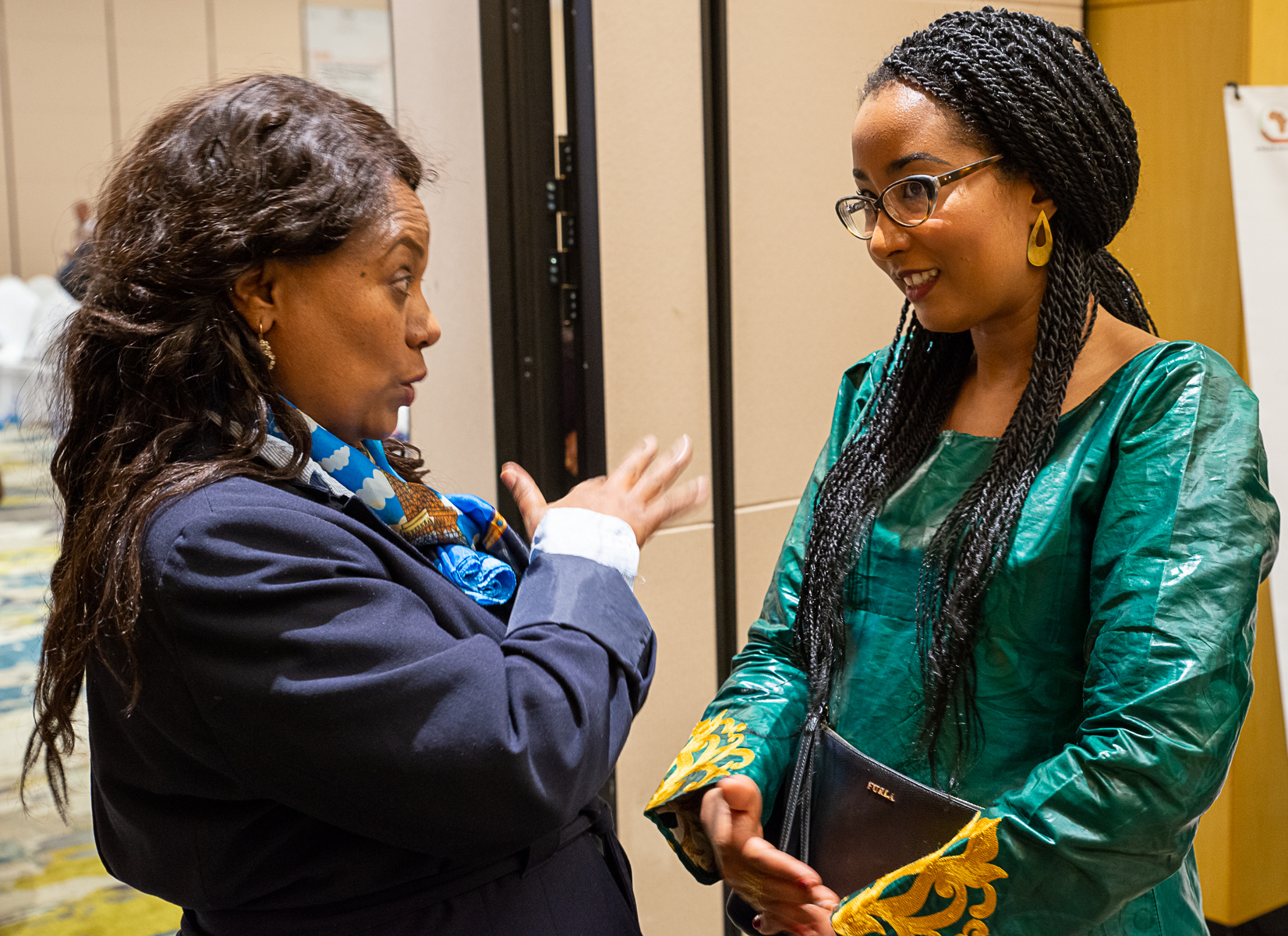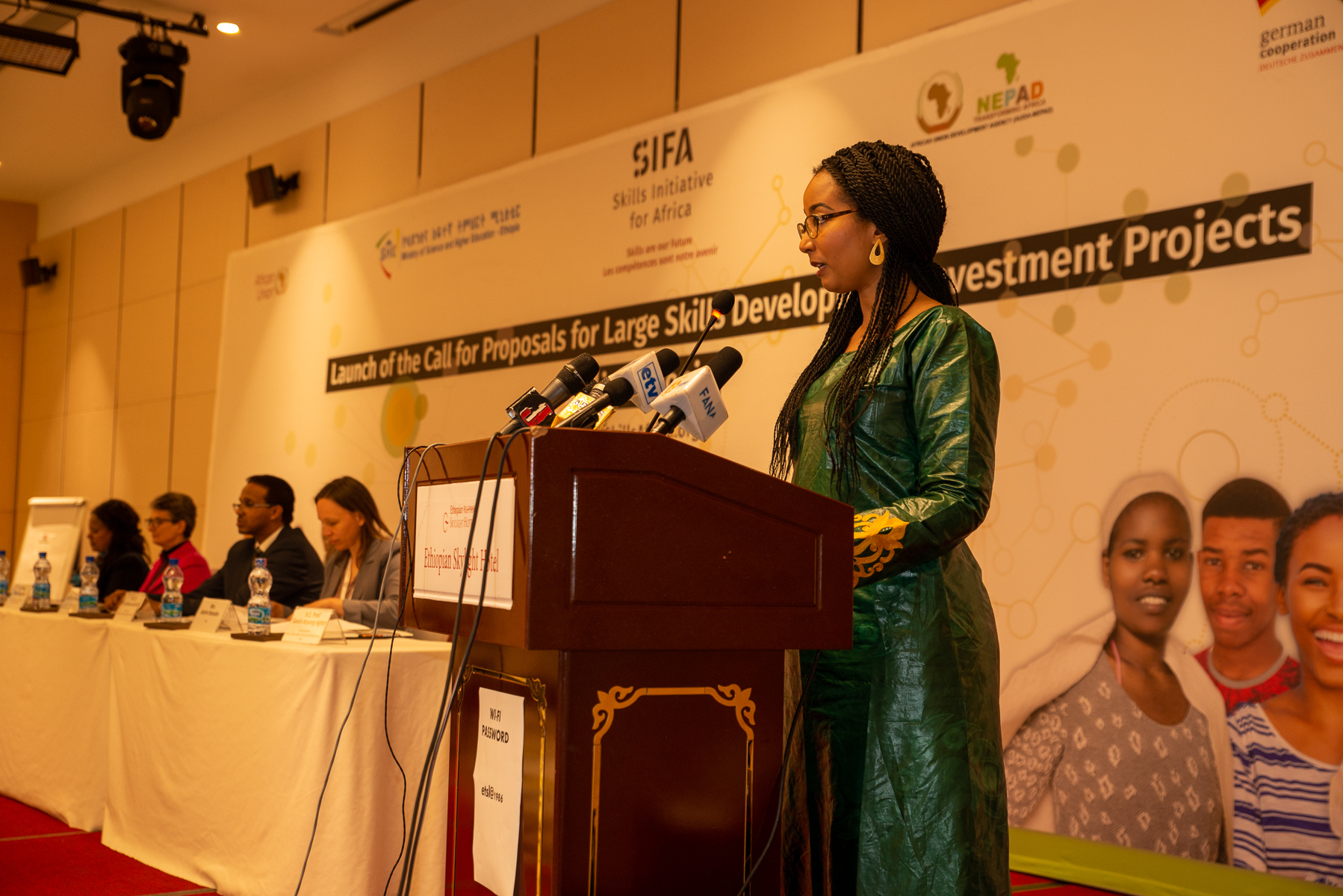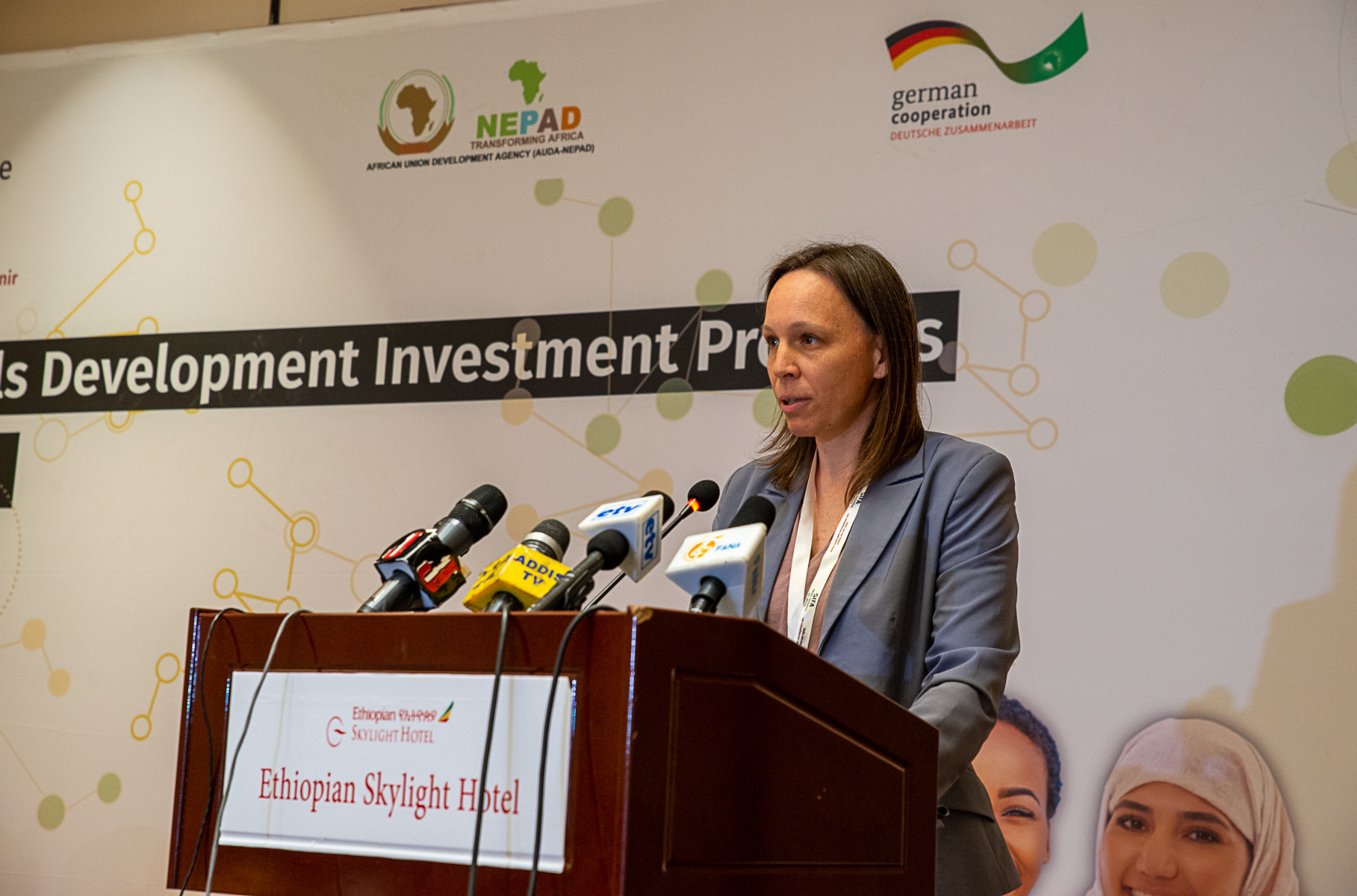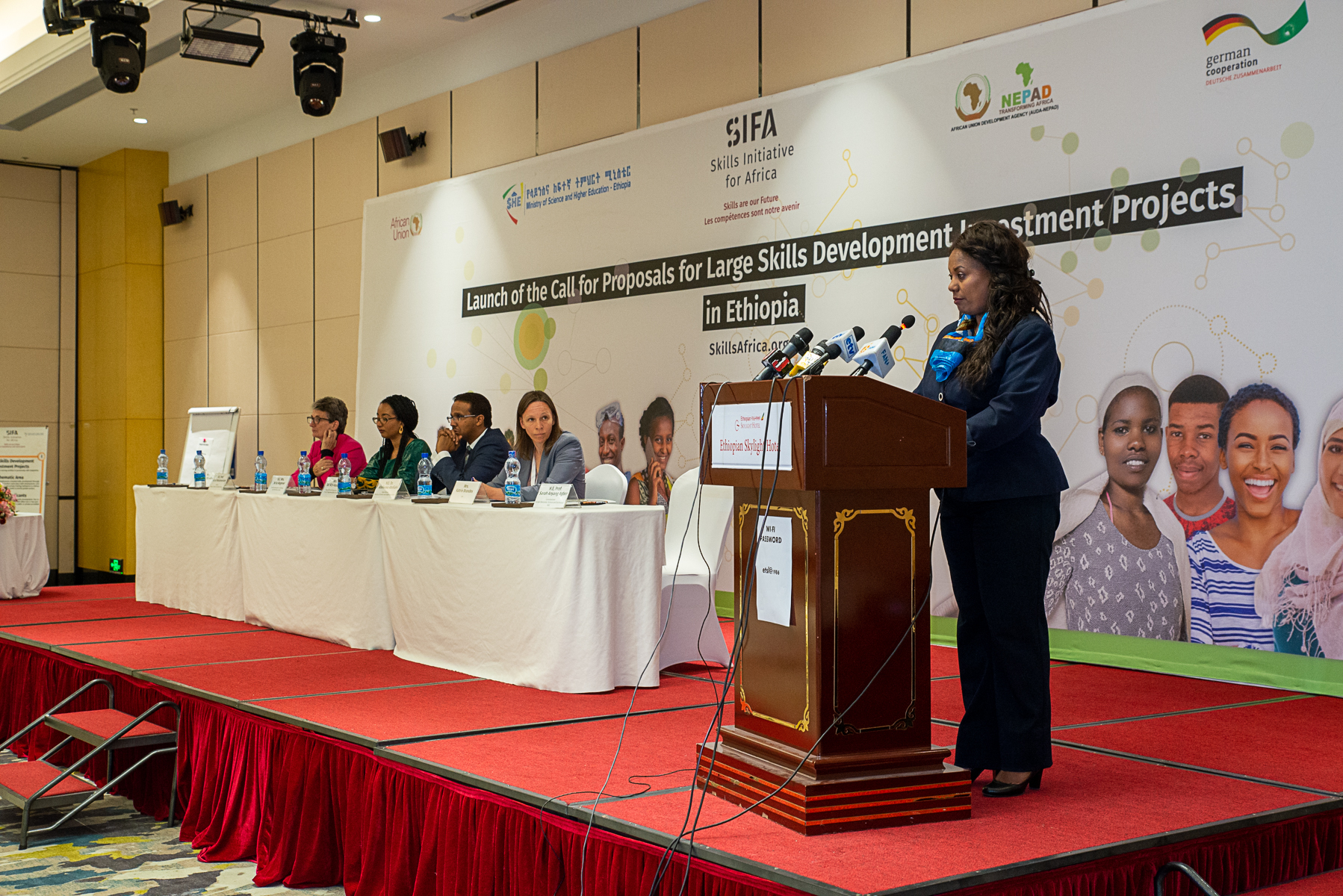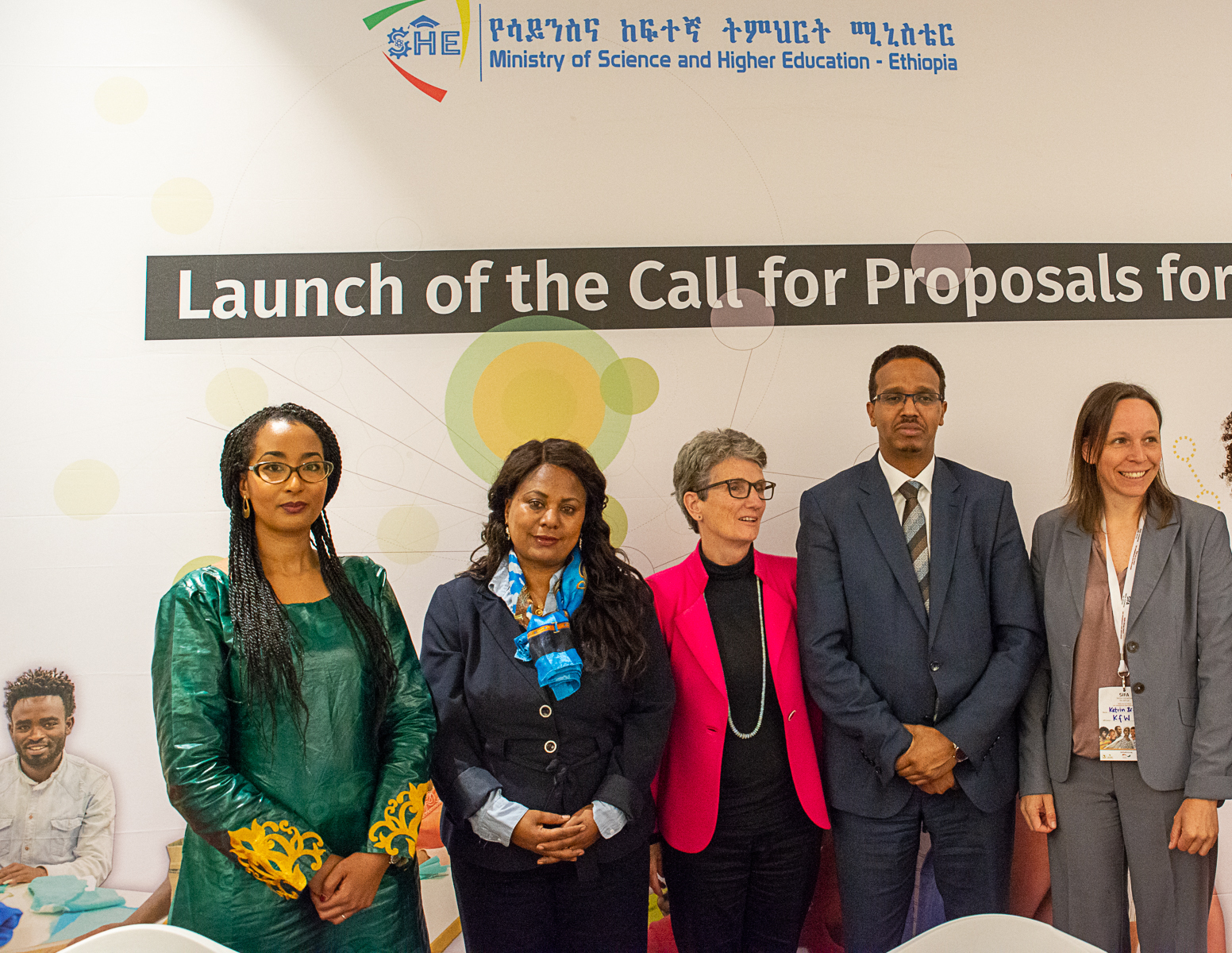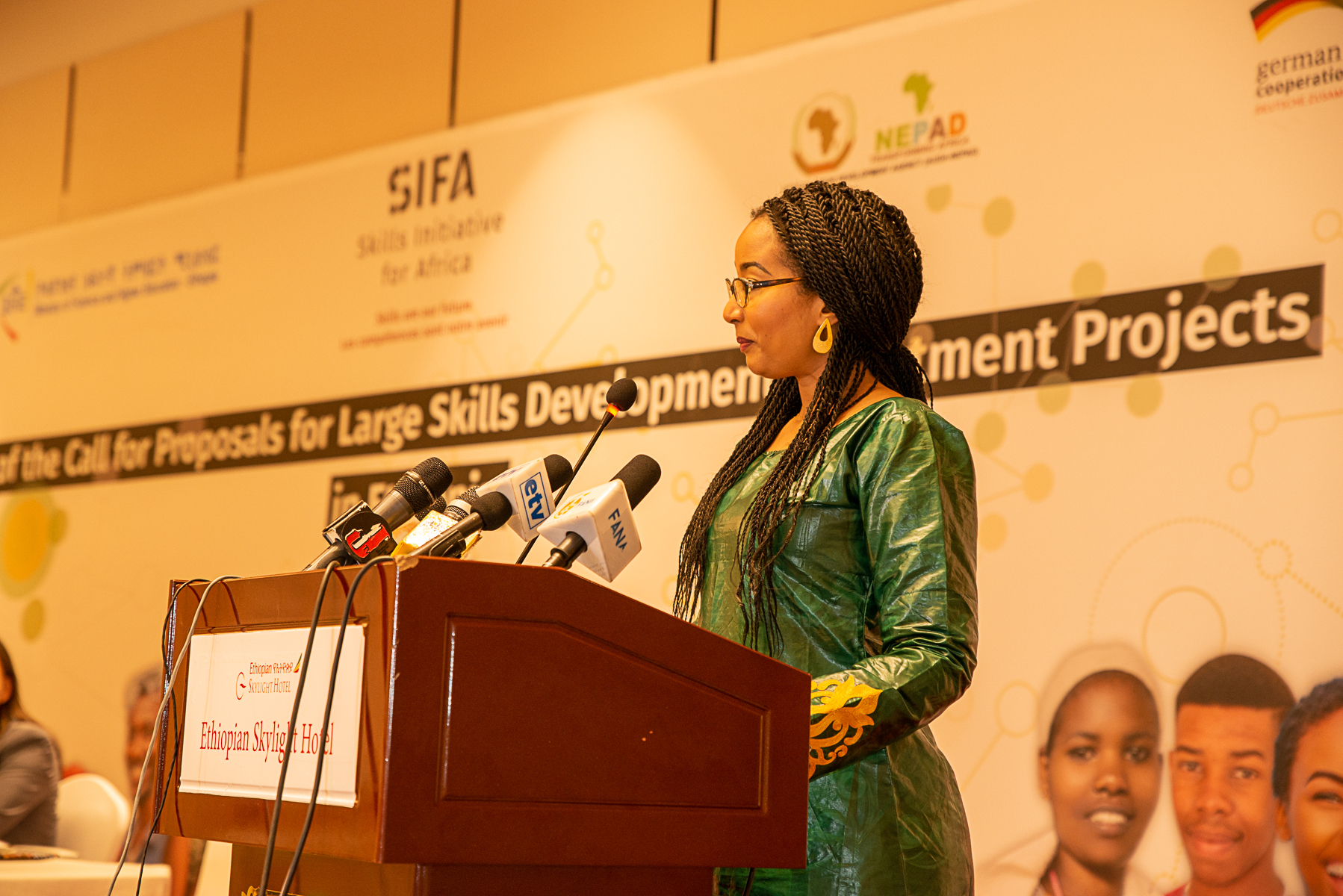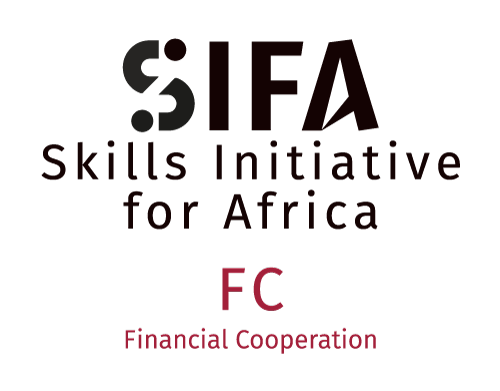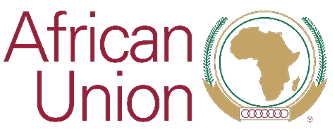Speech by Mrs. Fati N'Zi- Hassane , Director / Head of the "Skills and Employment for Youth" Program of the African Union Development Agency AUDA/NEPAD on the occasion of the launch of the call for proposals under Funding Window I of the Skills Initiative for Africa (SIFA) Project in Addis Ababa, Ethiopia on 26th June 2019
H.E. Prof. Hirut Woldemariam, Minister of Science and Higher Education
H.E. Mr. Ahmed Shide, Minister of Finance and Chairman of the TVET Council
Hon. Dr. Abdiwasa Abdilah Bade - State Minister of Science and Higher Education,
H.E. Prof. Sarah Anyang Agbor Commissioner - Human Resources, Science and Technology, African Union Commission
H.E. Mrs. Brita Wagener - German Ambassador in Ethiopia
Mr. Jan Blum - Director of KfW Office in Ethiopia
Distinguished guests,
Friends from the media,
Ladies and gentlemen:
I am very pleased to finally be with you in the vibrant city of Addis Ababa for this long-awaited event and to address these few words on my behalf and on behalf of the Chief Executive Officer of AUDA-NEPAD, Dr. Ibrahim Assane Mayaki.
Hon. Ministers, Ladies and Gentlemen:
Allow me to take this opportunity to brief you on some of the institutional changes regarding NEPAD, following the recent decisions of the 55 African Union Heads of State. During the year 2018, our Heads of State agreed on the transformation of the NEPAD Agency into the "African Union Development Agency (or AUDA)", with a clear mission to support the 55 African states in the implementation of the continental development blueprint known as: "Agenda 2063: The Africa We Want". This document consists of a set of activities that include the coordination and implementation of development programs, technical assistance, and capacity building of the AU Member States.
Ladies and gentlemen,
As you may know, the NEPAD Agency or AUDA is involved in areas as diverse as infrastructure development, regional integration, agriculture and the creation of regional markets, including the emergence of an African pharmaceutical industry. All these activities and preoccupations respond to the shared concern of Africa and Africans to see the emergence of a strong, united and sovereign continent.
To reach this vision, Africa can rely on the great potential offered by its youth.
A study conducted by NEPAD in 2015 found that by the year 2030, nearly 440 million young people will find themselves on the African labor market. These young people will then be between 15 and 35 years old, which means that they are already born. They are here with us. This is not a potential or possible scenario. It is a reality that we must tackle today. If they are educated, prepared and given the right opportunities, these young people have the potential not only to contribute to achieving the Africa we want, but also to place our continent at the center of the global economic system. But if nothing or too little is done for these young people ... we are sitting on a ticking a time bomb that in many countries may cancel all the efforts and achievements so far accomplished.
We know today that technical and vocational education and training (TVET) is a powerful vehicle for equipping young people with employment and entrepreneurship skills. The Agenda 2063 that I mentioned earlier calls for a paradigm shift towards transformative education and training systems to develop the knowledge, skills, research, innovation and creativity needed to secure the future of our young people and Africa as a whole.
To unleash the potential of TVET, the African Union has developed a "Continental TVET Strategy" which provides a comprehensive framework for skills development and youth employment. Nevertheless, a shortage of qualified teachers, scholarships and adequate infrastructure, as well as the lack of practical vocational training programs and technical and didactic equipment, still constitute significant obstacles to the proper implementation of this Strategy.
It is in the light of these challenges that the African Union and the German Government have come together to launch and promote the Skills Initiative for Africa (SIFA). As part of the SIFA project, a funding mechanism for skills development has been put in place. The facility is implemented by the African Union Development Agency, AUDA / NEPAD, with funding from Germany through KfW. The funding mechanism is designed to respond coherently to the common challenges of skills development in Africa by developing and disseminating local best practices and supporting innovative and sustainable approaches, thereby promoting employment and the spirit of entrepreneurship among young people, women and other vulnerable populations. For the moment, the countries benefiting from the SIFA financing mechanism are Cameroon, Ghana, Kenya, Nigeria, South Africa, Togo and Tunisia, and of course, Ethiopia.
The expectations are particularly high for Ethiopia because of the particular interest and political will in promoting TVET, as captured in the ambitious national Growth and Transformation Plan II (GTP II). Accordingly, your Government has committed to fully mobilize the necessary resources including quality assurance monitoring and support towards TVET institutions to maintain the quality and implement the design of TVET systems in an organized manner. Therefore, government investment and cooperative training will be fully implemented to ensure the provision of human resource that will satisfy the nation`s demand for skilled human power.
Such efforts are to be saluted. They are also the reason why many African countries are turning to Ethiopia as a source of inspiration in TVET-related policy design and implementation.
On behalf of AUDA/NEPAD, I wish to reaffirm our support to the Ethiopian authorities in achieving its objectives in the field of employment and vocational training through SIFA and through any other kind of support within our mandate and our capacity. Honorable Minister, we are at your service.
Our support also goes to all potential applicants for the financing window I of SIFA.
To materialize this support, the SIFA team of experts will organize later today and tomorrow an informative session giving potential applicants a detailed and precise understanding of the application process, the eligibility criteria and the modalities for the submission of the concept notes that will be used to evaluate the projects submitted.
Allow me, ladies and gentlemen, to provide some details on the projects that will be assessed under funding window 1. As mentioned earlier, this window funds large-scale investment for skills development projects.
Projects must be proposed by Ethiopian training structures in partnership with public or private enterprises. The selected projects will receive a grant of up to 3 million €. This grant may be used to finance the construction, rehabilitation, or extension of training centers or the purchase of modern training equipment. In addition, activities such as the design of training programs, training of trainers and scholarship programs for learners may be funded under certain conditions to be specified during the technical session.
Hon. Ministers, Ladies and gentlemen,
Skills Initiative offers all of us, in the eight countries of implementation, with the support of the development partners, an opportunity to experiment new approaches in the field of TVET. We hope that the principle of competition, combined with the engagement of the private sector, local and international, will help generate experiences and best practices that will benefit African countries beyond the current scope of SIFA.
We are grateful for the opportunity to explore this unchartered territory, with a strong support of Member States such as Ethiopia. We are aware of the expectations and of the challenges, but we believe that the solutions to the issues faced by our continent will not be found and implemented by doing the same thing and expecting a different result.
Please allow me to end with a few words by Kwame N’Krumah, that were reminded to me by one of our team members, and that have guided my work since then:
"The task ahead is great indeed, and heavy is the responsibility; and yet it is a noble and glorious challenge –
A challenge which calls for the courage to dream,
The courage to believe,
The courage to dare,
The courage to do,
The courage to envision,
The courage to fight,
The courage to work,
The courage to achieve - to achieve the highest excellence and the fullest greatness of man.
Dare we ask for more in life?”
I thank you.

